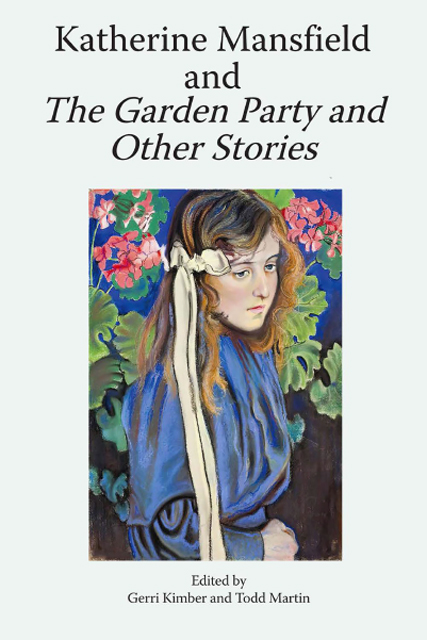‘If only one had time to look at these flowers long enough, time to get over the sense of novelty and strangeness’: The Political Language of Flowers in Katherine Mansfield’s The Garden Party and Other Stories
Published online by Cambridge University Press: 03 June 2023
Summary
Katherine Mansfield’s life-long love of flowers and her passion for them feature strongly in much of her writing. In early childhood, as Ruth Elvish Mantz notes, her ‘great-uncle Craddock’ had told her ‘about some flowers’ and ‘had written some verses with a little moral – something about flowers having personalities; they never should be burned, never thrown into the fire’. Mantz also indicates that all of the Beauchamp family shared a passionate love for flowers. These sentiments became embedded in Mansfield’s imagination and remained with her throughout her life. In a letter to her friend Dorothy Brett, Mansfield writes: ‘I had so many flowers when I was little, I got to know them so well that they are simply the breath of life for me. Its no ordinary love; its a passion.’ In another letter to Brett, written a month earlier on 22 December 1921, she writes ‘what wouldn’t I give for some flowers […] this longing for flowers. I crave them’, declaring that ‘I could kiss the earth that bears flowers. Alas, I love them TOO much!’ The urgency of the language, expressed in quasi-erotic terms, reveals the sensuous pleasure Mansfield derived from flowers. Writing to her sister, Vera Beauchamp, in late March 1908, Mansfield declares, ‘flowers like Tom’s music seem to create in me a divine unrest – They revive strangely – dream memories’ and ‘show me strange mystic paths – where perhaps I shall one day walk – To lean over a flower [is] to commune with the soul.’ There are echoes in these lines of the writings of the Swiss philosopher, Henri Frédéric Amiel (1821–81), whom Mansfield admired. In his Journal Intime he writes:
Each bud flowers but once and each flower has but its minute of perfect beauty, so in the garden of the soul each feeling has […] its flowering instant, its one and only moment of expansive grace and radiant kingship […] in the heaven of the mind each thought touches its zenith but once, and in that moment all its brilliancy and all its greatness culminate.
Flowers overpowered Mansfield’s imagination, and her deeply felt passion for them is transmuted into her last collection, The Garden Party and Other Stories.
- Type
- Chapter
- Information
- Katherine Mansfield and The Garden Party and Other Stories , pp. 127 - 140Publisher: Edinburgh University PressPrint publication year: 2022



